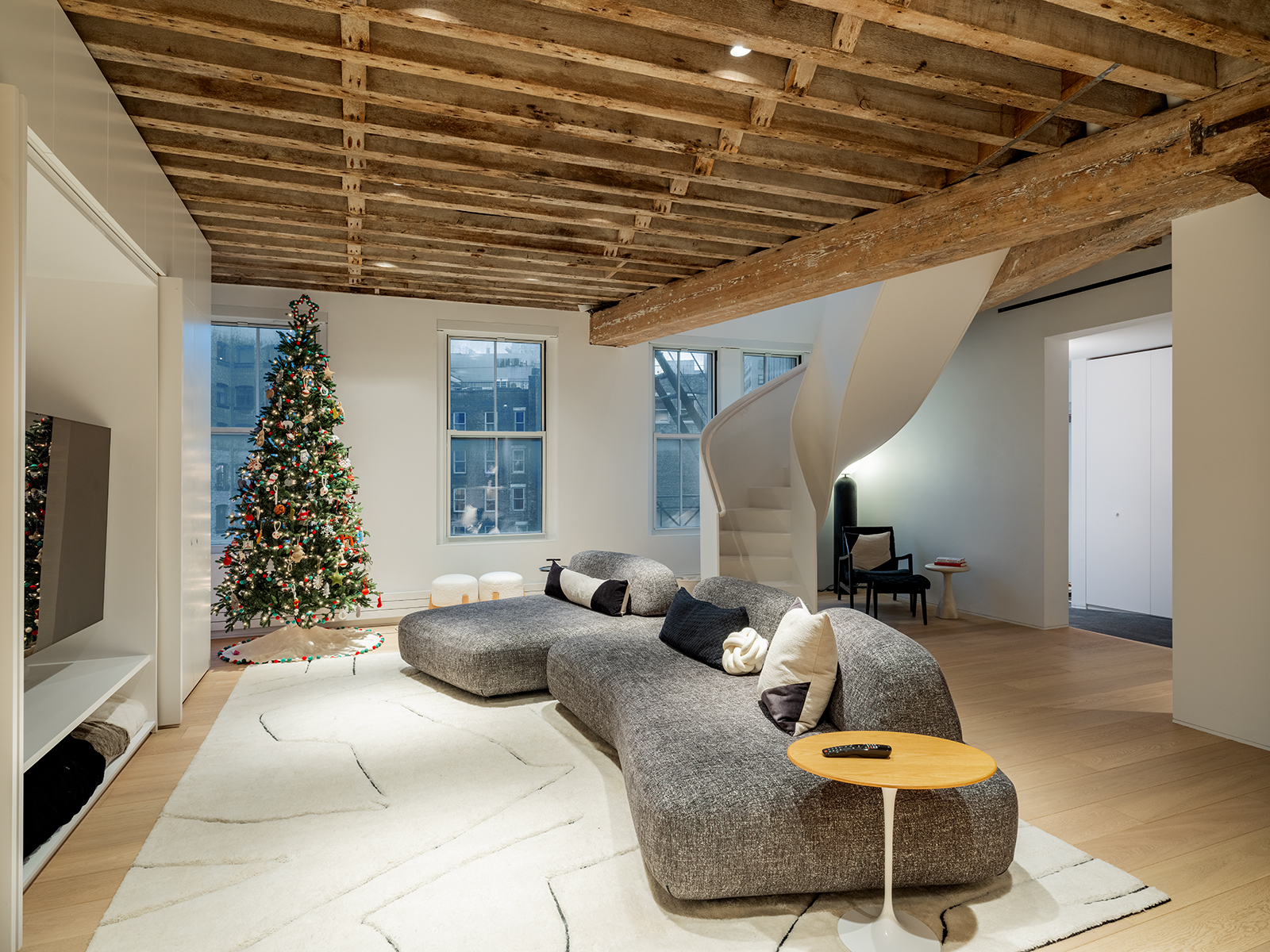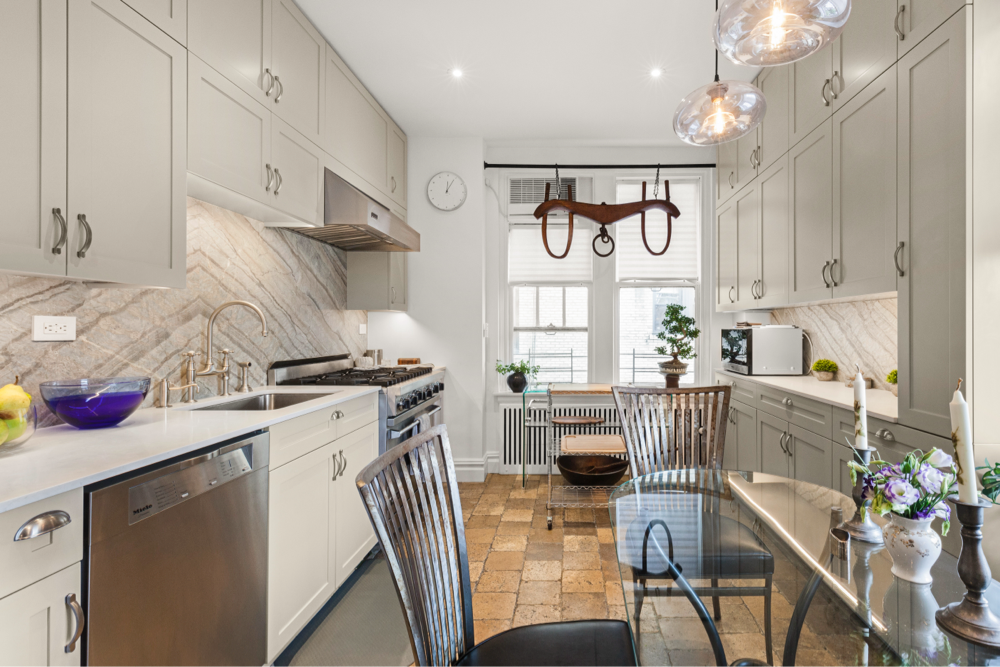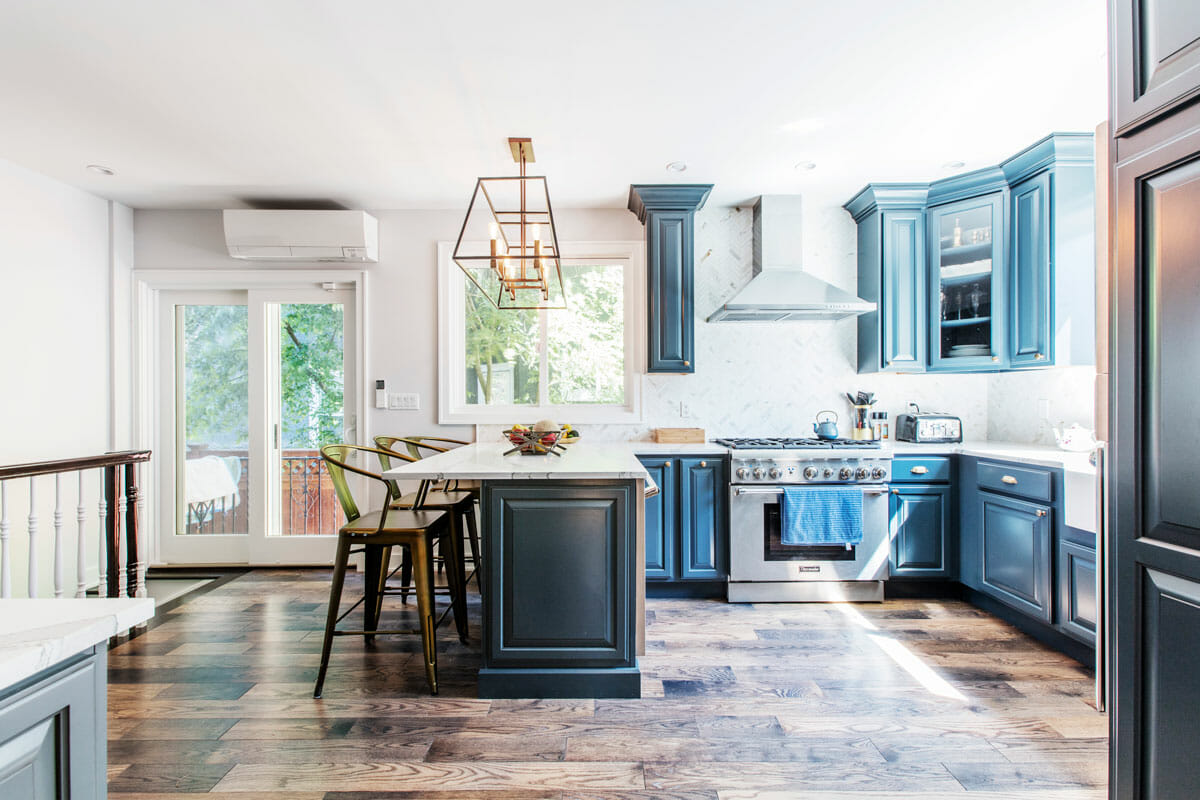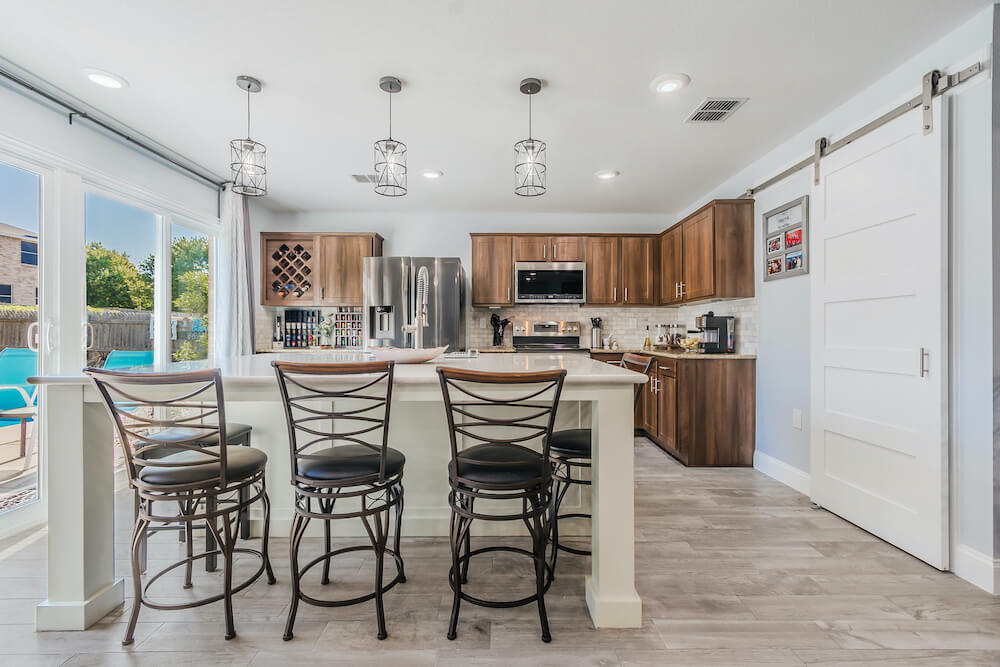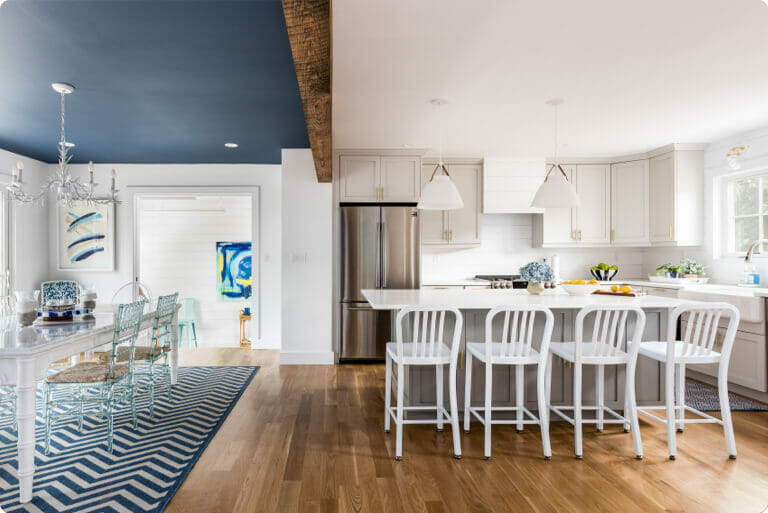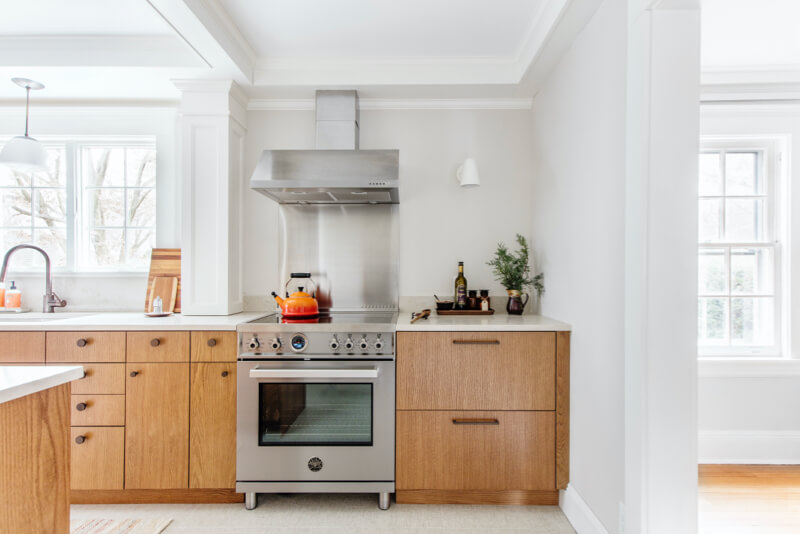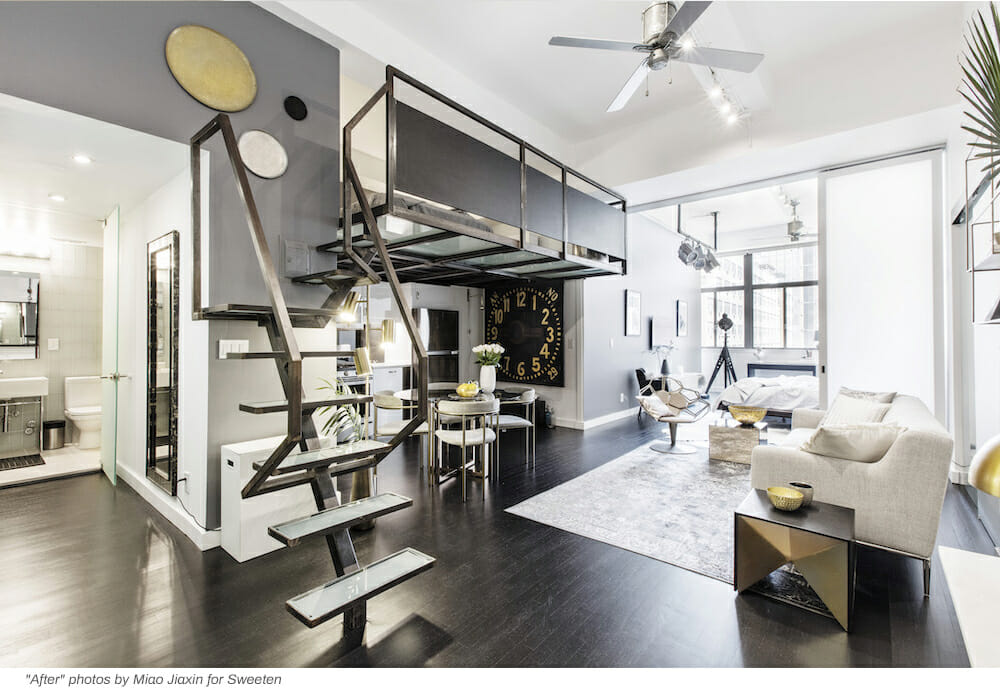A Step-by-Step Guide to Adding a Washer and Dryer to Your Home
Tired of lugging laundry to a shared space or laundromat? Adding a washer and dryer to your home is a game-changer, offering ultimate laundry convenience. This guide empowers you to navigate the process seamlessly, from exploring potential locations to considering key installation factors.
We’ll delve into the practicalities of adding a washer and dryer, equipping you with the knowledge to transform laundry day from a chore to a breeze.
What do you need?
Space—This may be obvious, but there isn’t always room in tiny NYC apartments for one! You can get creative—take a look at the washer and dryers in apartments that Sweeten homeowners have come up with for ideas.
You may want to build a closet, tuck it under a kitchen counter, or hide it away inside cabinetry.
At Sweeten, we’re experts at all things general contractors — we pre-screen them for our network, carefully select the best ones for your remodeling project, and work closely with hundreds of general contractors every day. So, we’ve tapped our internal expertise to bring you this guide.
Building approval—This only applies to apartment buildings. Many buildings have no “wet-over-dry” rules, so it’s best to choose a spot inside a “wet zone” in the apartment. Good locations include inside the kitchen or bathroom or directly next to one of those rooms.
It will also be easier to route plumbing this way. Buildings usually stack the wet zones in a vertical line. Putting a washer and dryer in your bedroom closet wouldn’t be permitted even if there’s room for one.
You’ll have to submit an architect’s plan for review by your board. Many Sweeten contractors can refer an architect if your project requires one.
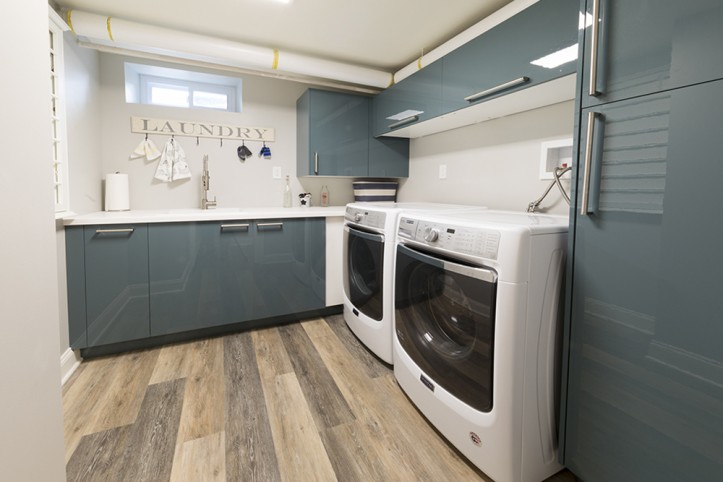
City permits: When adding new electrical or plumbing lines to your home or apartment, obtaining the necessary city permits is crucial. These permits ensure compliance with local building codes and regulations.
Electrical capacity: To prevent electrical fires, building codes typically require the installation of an AFCI (Arc Fault Circuit Interrupter) circuit breaker. However, it’s essential to consult with a licensed electrician to confirm that your home has the electrical capacity to handle the additional load of a washer and dryer. This applies to both houses and apartments.
New plumbing and electrical: A licensed plumber and electrician will need to route new lines for the washer and dryer. If you opt for a gas dryer, the plumber will also install a new gas line.
Additional tips:
- Choose the right location: Consider factors such as accessibility, proximity to water and electrical sources, and ventilation when selecting a location for your washer and dryer.
- Measure carefully: Ensure you have enough space for the washer and dryer, including any necessary clearance around the appliances.
- Ventilation is key: Proper ventilation is essential to prevent moisture buildup and mold growth. Consider installing an exhaust fan or venting the dryer outdoors.
- Consider stacking: If space is limited, stacking your washer and dryer can be a practical solution.
- Efficiency matters: Look for energy-efficient models to reduce your utility bills.
- Professional installation: For a seamless installation and to avoid potential problems, consider hiring a professional technician.
Sweeten brings homeowners an exceptional renovation experience by personally matching trusted general contractors to your project, while offering expert guidance and support—at no cost to you. 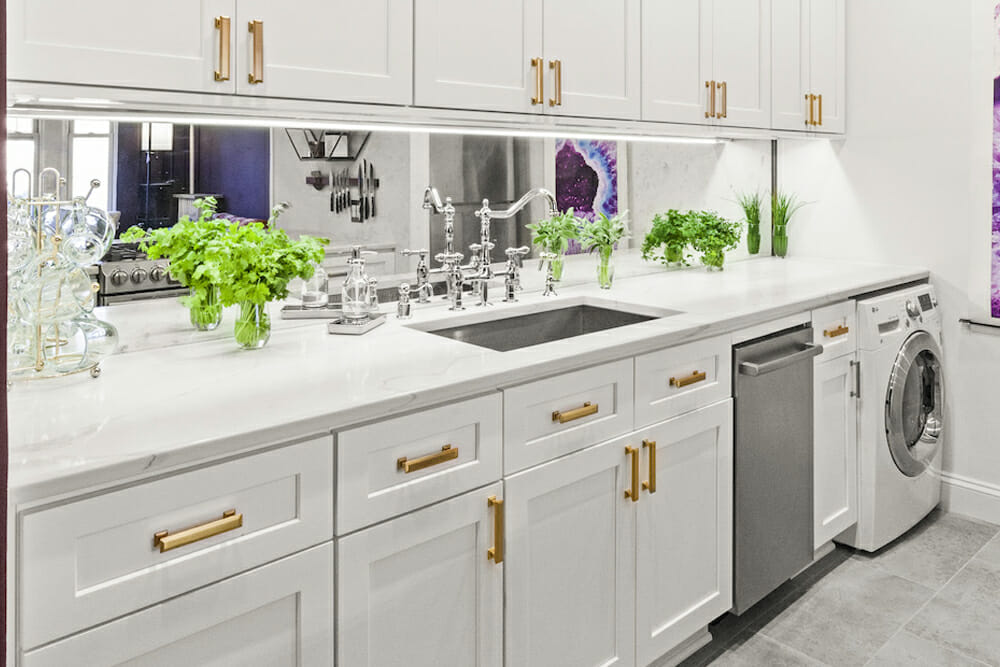
Renovate expertly with Sweeten
Getting approval to add a washer/dryer
If you live in an apartment building—whether it’s a co-op or a condo—check the alteration agreement and house rules for adding a washer and dryer. Some buildings expressly prohibit it, others will allow existing units to be grandfathered in but will not permit new ones.
A select number will allow it with the proper approvals and permits. “If your building doesn’t allow the installation of a washer and dryer, don’t take it personally,” said New York/New Jersey Sweeten general contractor Majid. “There is a logical reason why.
Older buildings have limited plumbing capacities that adding a washer may overwhelm. There is a higher risk of leakage and overflow as well as the potential for water or fire damage.
Most boards won’t accept the risk or liability” and won’t allow it if the building is not already equipped for it. For this reason, it’s also not advisable to add one without approval.
Should your unapproved appliances malfunction and damage units adjacent to or beneath yours, you’ll be responsible. If you live in a house that you own, there should be no problem since there are no boards to notify.
In a rental, you’ll have to discuss it with your landlord, who may be willing to add one at his/her discretion.
How much does a laundry room remodel cost?
It will cost more to add a washer and dryer to a city apartment than it will in a house. “There are additional variables that get factored into the estimate,”
Majid says. Contractors will consider the parking situation, the limits on working hours permitted by the building, and the greater liability of working in a multi-unit building.
Majid also suggests that compact, stackable washers and dryers (electric and ventless) are the most suitable choices for apartment living. In the city, homeowners should budget $7,000 to $15,000 on average for a new washer and dryer, which takes many variables into play.
The higher end of the range includes creating a closet for the appliances. In a house, because there are fewer complexities, the price range is lower: approximately $3,000 to $5,000 should get the job done. The higher-end includes building a space or room to house the units.
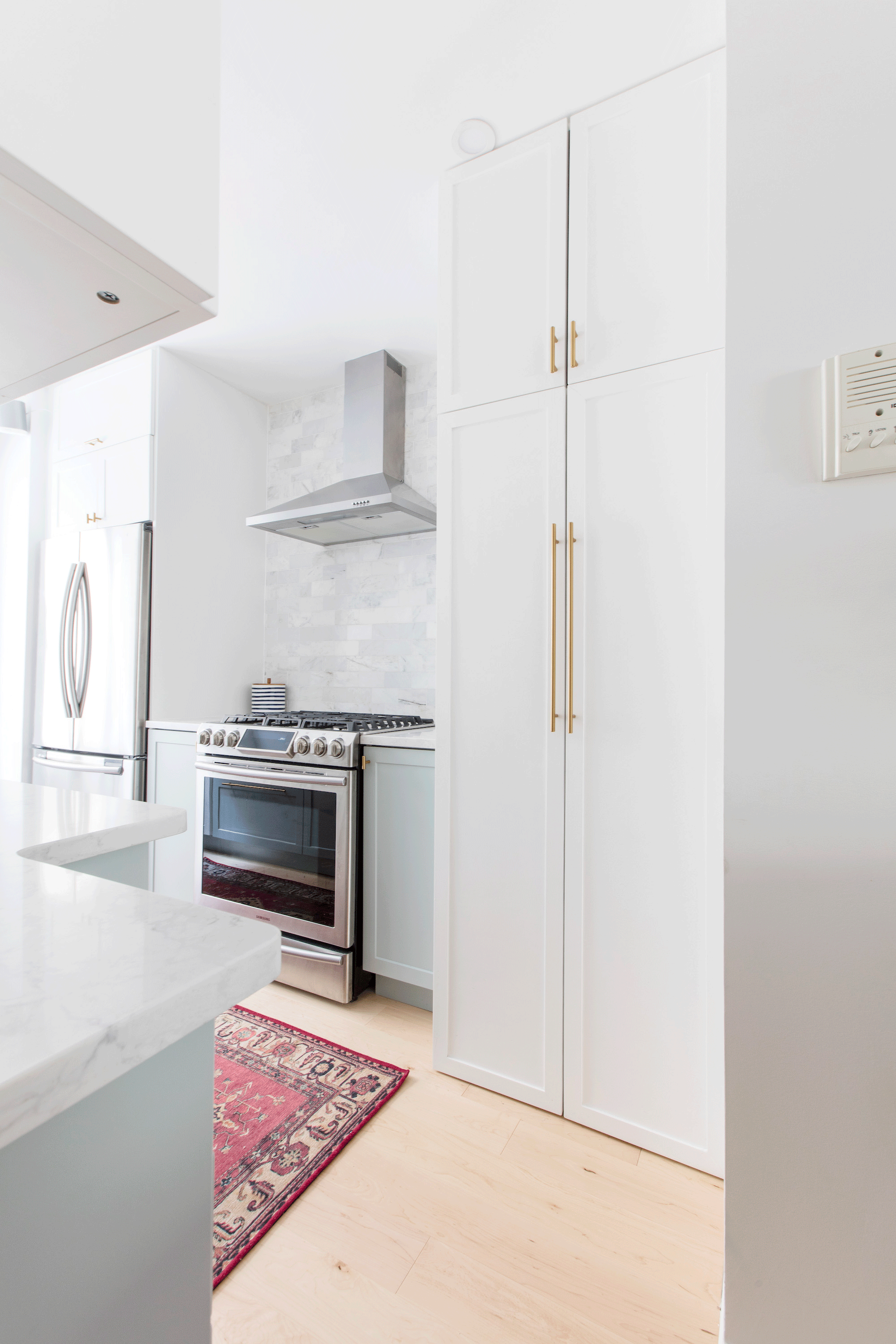
How long does it take to install a washer and dryer at home?
In terms of construction and labor, a good estimate is 3-5 days. The plumber will need a day, the electrician will need a day, and then you may need a day for relocations as well as to close up the wall.
On day four, you’ll be able to paint, once it’s dry, install the new washer/dryer (day five).
What permits and approvals do I need before installing a washer/dryer?
If you are adding any new plumbing or electrical wiring, you’ll need a permit from the city. If you live in an apartment building, you’ll probably need approval from your condo or co-op board, even if it’s a simple installation.
Be sure to check house rules before hiring an architect to draw up plans.
If you are already considering a renovation elsewhere in your home, adding this to your scope is a good idea if you’re able to meet the criteria above. Take advantage of having your general contractor, renovation plans, and schedule already in place, and get ready to unveil your new home—and laundry perks—all at once.
When you’re ready to get started on your remodel, discuss with your Sweeten contractor if installing the units is possible in your space.
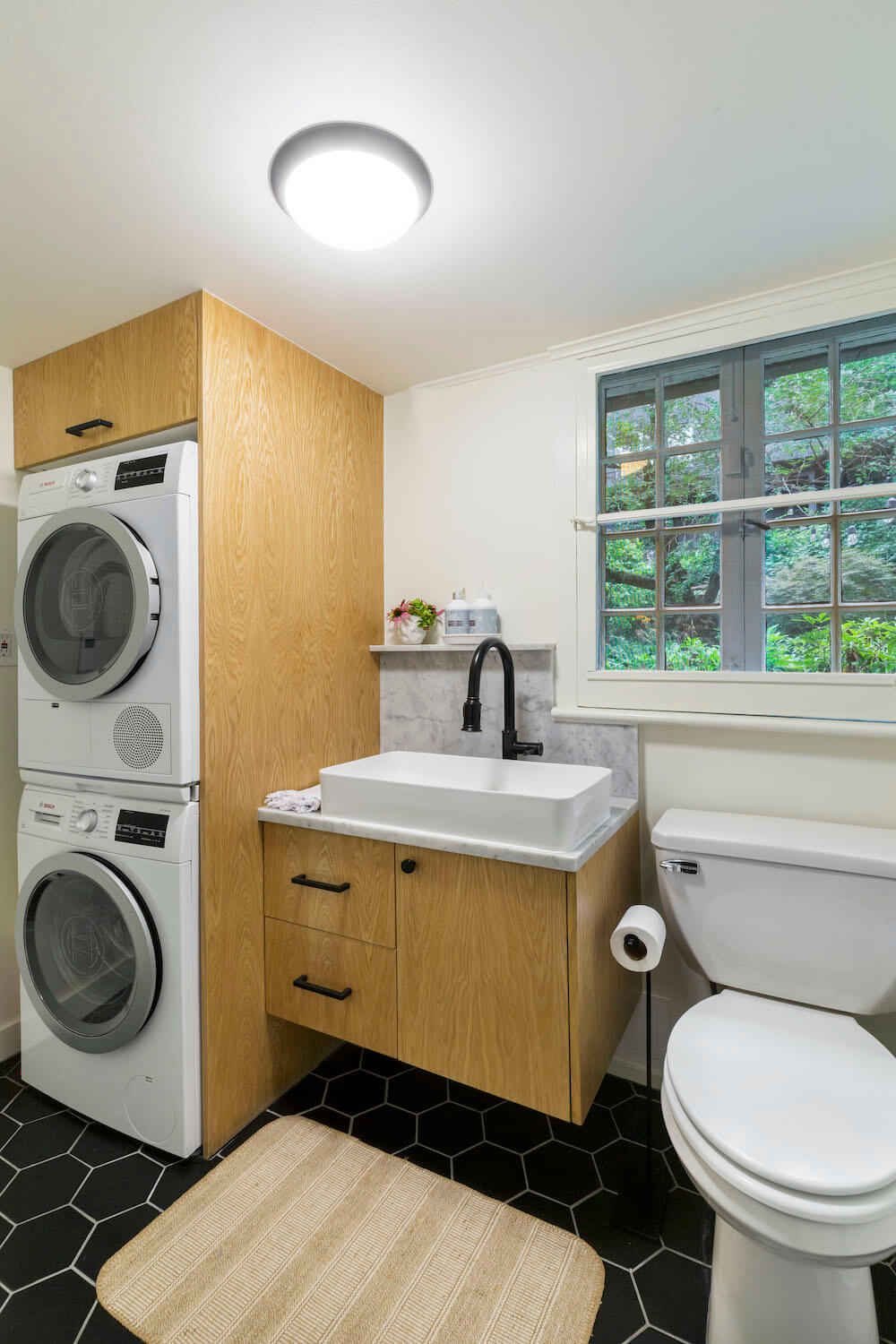
Buying the best-rated washer and dryer
When you’re ready to renovate, you’ll want to find the right washers and dryers to fit your home and lifestyle.
Here are the three most important features to look for in a best-rated washer and dryer, according to Albert Fouerti, founder of Appliances Connection:
- The spin speed of the washing machine – A standard washing machine goes up to 1200 rpm/1400 rpm. Delicates only need 400 rpm, while a standard load of cotton requires 900-1400 rpm.
- Look for a steam cycle for both washer and dryer to provide optimal stain removal.
- Machines that have Smart capabilities with an app – Some features include start/stopping your appliances from your phone or receiving alerts when a load is done.
Ready to renovate? Start here for free!
Here you can learn more about our services and locations. Alternatively, browse more home renovation inspirations, processes, and cost guides.
